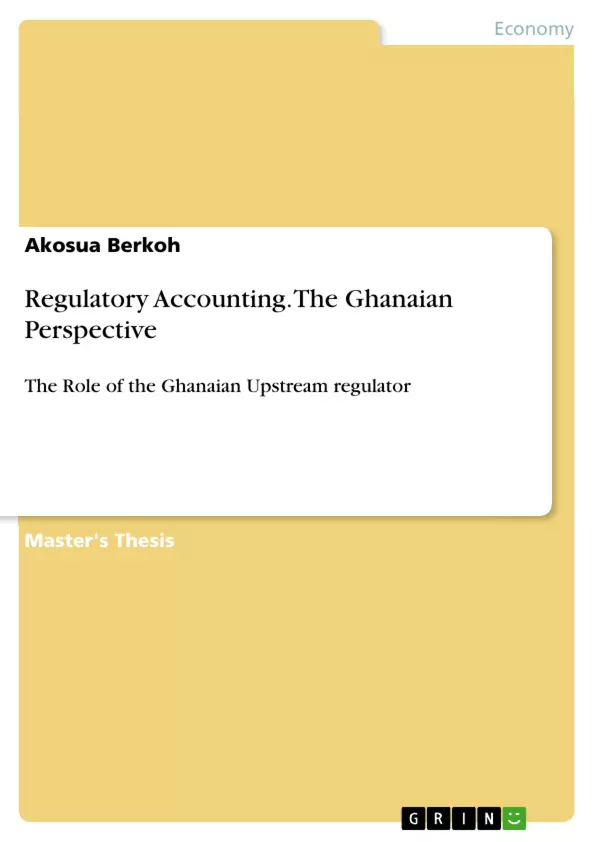This study was undertaken to assess the impact of information on regulatory accounting using the Ghanaian oil and gas industry regulator as a case study. It brings to bear the various concepts of regulatory accounting and information asymmetry and how they impact the role of a regulator in executing its mandate.
Inhaltsverzeichnis (Table of Contents)
- Chapter 1: Introduction
- Chapter 2: Literature Review
- Chapter 3: Research Methodology
- Chapter 4: Data Analysis and Findings
Zielsetzung und Themenschwerpunkte (Objectives and Key Themes)
This study aims to evaluate the effectiveness of information provided by Ghanaian oil and gas operators to their industry regulator. The research assesses whether this information is "fit for purpose" in enabling the regulator to fulfill its functions, specifically in setting tariffs and monitoring operator performance.
- Effectiveness of regulatory information in tariff setting and review.
- Effectiveness of regulatory information in monitoring operator performance.
- Analysis of information gaps and deficiencies.
- Assessment of the regulator's information gathering processes.
- Recommendations for improving regulatory information.
Zusammenfassung der Kapitel (Chapter Summaries)
Chapter 1: Introduction This chapter introduces the research topic, highlighting the importance of effective regulatory information in the Ghanaian oil and gas industry. It outlines the research objectives and methodology.
Chapter 2: Literature Review This chapter reviews existing literature relevant to regulatory information in the oil and gas industry, providing a theoretical framework for the study. It explores relevant concepts and previous research on the topic.
Chapter 3: Research Methodology This chapter details the research methodology employed, including the data collection methods and analytical techniques used to assess the effectiveness of regulatory information.
Chapter 4: Data Analysis and Findings This chapter presents the key findings of the study, based on the analysis of data collected from the Ghanaian upstream regulator and operators. It examines the effectiveness of the regulatory information gathered, identifying areas of strength and weakness.
Schlüsselwörter (Keywords)
Operators; regulatory information; Ghanaian upstream regulator; disclosure; effectiveness; oil and gas industry; tariff setting; performance monitoring; accountability framework; health, safety, and environmental policies.
- Quote paper
- Akosua Berkoh (Author), 2014, Regulatory Accounting. The Ghanaian Perspective, Munich, GRIN Verlag, https://www.grin.com/document/1504512



